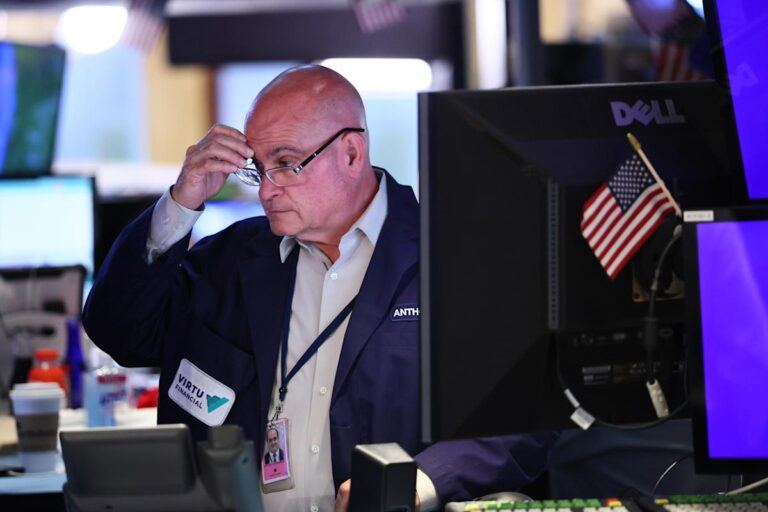As stocks continue to shrug off rising conflict in the Middle East, strategists argue that any major moves in oil futures will likely be the biggest driver of shifts in the equities market.
“Oil prices will determine whether volatility persists,” Morgan Stanley chief investment officer Mike Wilson wrote in a note to clients on Monday morning.
On Monday, overnight surges in oil prices subsided. Brent crude (BZ=F), the international benchmark, fell about 9% to slip below $71 a barrel. West Texas Intermediate (CL=F) futures also slid about 9% to fall to about $67.50.
Stocks rose as oil fell. The S&P 500 (^GSPC) and the tech-heavy Nasdaq Composite (^IXIC) added nearly 1%. The Dow Jones Industrial Average (^DJI) popped about 0.9%, or just under 400 points. All three major averages hit their highs of the day as oil tumbled off reports that Iran launched missiles toward US air bases in Qatar and Iraq in retaliation over US strikes against Iranian nuclear sites.
Wilson pointed out that typically a large spike in oil, defined by at least a 75% increase in WTI oil prices compared to the prior year, is required to have a spillover into the equity market. In the current scenario, this would require oil to hit about $120 a barrel.
The chief concern amid a spike in oil prices would be the potentially inflationary impacts and how that could weigh on both business and consumer spending.
“The bear case scenario for equities tied to the recent events in the Middle East would be that oil prices rise significantly, thereby posing a threat to the business cycle,” Wilson wrote.
Citi’s head of US equity trading strategy, Stuart Kaiser, agrees.
“We still see sharply higher oil prices as the channel for geopolitical risks to impact stock markets,” Kaiser wrote. He added that escalations in the Middle East could “distract” from economic data releases in the near term.
Investors are closely watching how Iran will respond to the US strike on its nuclear facilities. Many believe Iran’s potential closure of the Strait of Hormuz to be a key catalyst that could send oil prices higher.
According to state media, Iran’s parliament has voted to close the Strait of Hormuz. But the final decision on whether or not the key waterway, which handles roughly 20% of global oil flows, will actually close is expected to lie with Iran’s Supreme National Security Council and Supreme Leader Ayatollah Ali Khamenei.
For now, a Strait of Hormuz closure, along with a large subsequent spike in oil prices, is not the consensus call on Wall Street.
Story Continues
